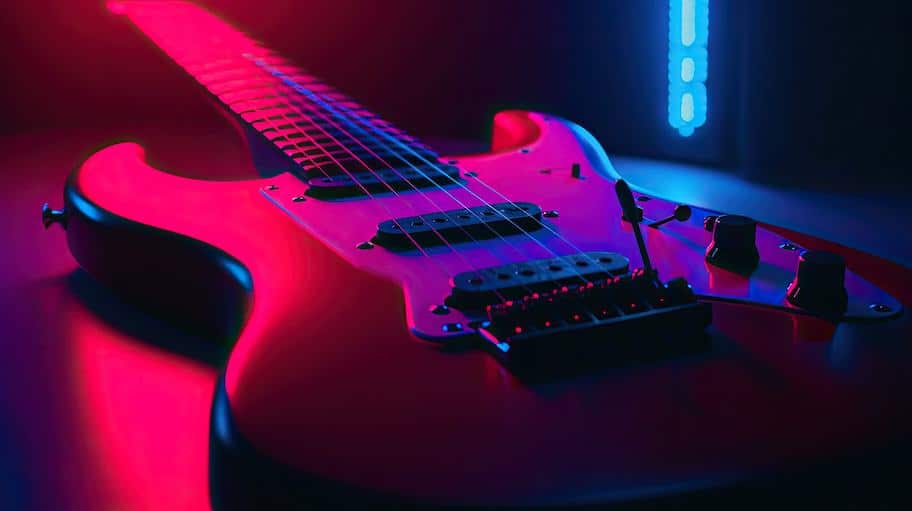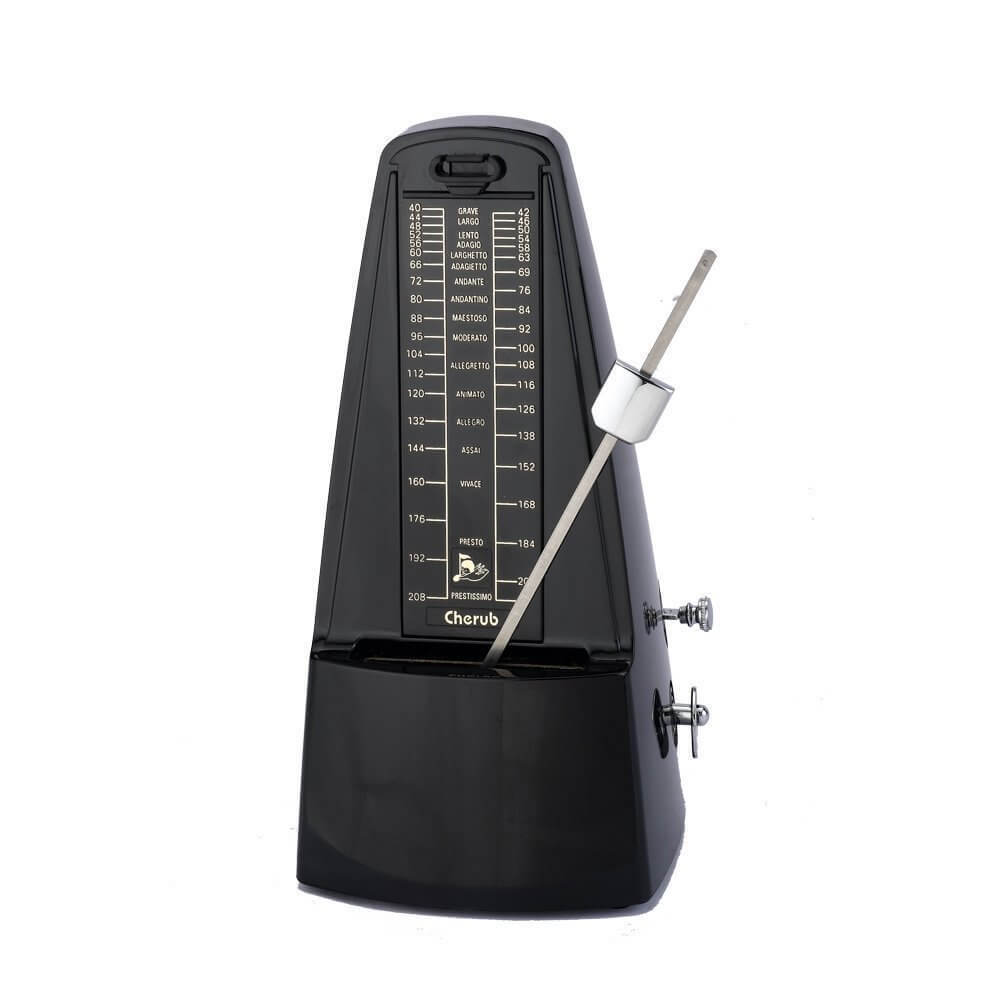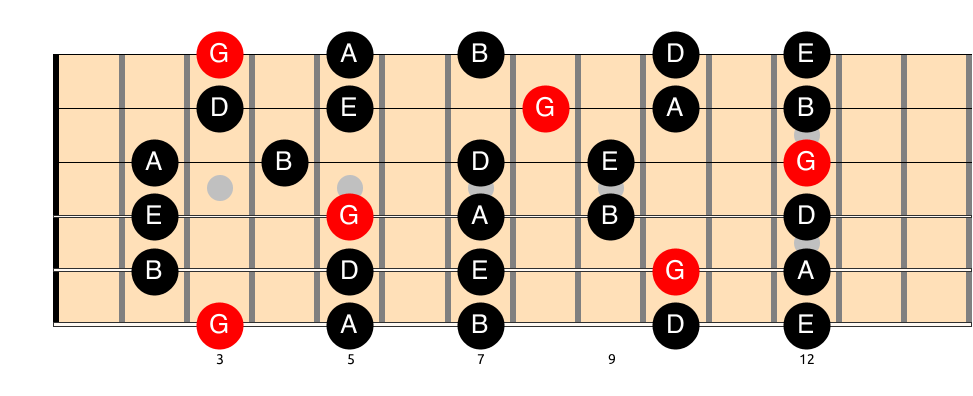Beginner guitarists, beware! These 7 common mistakes can slow down your progress and make you want to give up. Learn how to avoid them all and fast-track your guitar journey in this blog post.
Do you want to know a secret?
Even experienced guitarists make mistakes. It doesn’t matter how long you’ve been playing the guitar, you can still fall into some common traps.
But don’t worry. I’m here to share with you the seven most important things you need to know about playing the guitar that will help you avoid frustration and achieve your musical goals faster.
Trust me, I wish I had known these tips when I started to play guitar.
Plan to Take Guitar Lessons? Read This First:
First off, big applause for starting your guitar journey! You’ve made a smart move by choosing guitar lessons. Many folks who try to learn all by themselves run into a tough spot, where they struggle to stay motivated and improve.
But here’s the straight scoop:
taking lessons with a great guitar teacher or diving into online tutorials is just the beginning.
Your success as a guitarist ultimately depends on one person—you. It’s not just about how much you practice but how you practice.
Let’s explore seven essential tips to guide you along your guitar adventure.
Tip #1: Feeling Frustrated? That’s Just Your Brain Building Muscle Memory
Learning guitar, like any instrument, is a complex skill requiring much practice to improve. Don’t expect to get better overnight; that’s unrealistic.
Never say you’re ‘struggling’ at something new you’re practicing either. It’s just the natural process of learning – you just have to build muscle memory, which develops quickly with consistent and focused practice.
Think of any skill you now have that once seemed hard. This could be any life or work-related skill, from driving a car, communicating with people, or tying your shoelace.
These skills once felt difficult until you got used to them over time. Heck, it took most of us, on average, between 14-17 months to learn how to walk on two feet!
It sounds crazy when you think that now you walk without even thinking.
So, think of learning guitar this way. Whether it’s a chord change, strumming pattern rhythm or solo technique, whatever new thing you’re learning that feels hard, you’ll eventually master it after enough practice. Soon you’ll find yourself wondering what all the fuss was about.
Tip #2. It’s Technique That Makes the Difference
Here’s a golden rule to engrave in your mind: Before you can play songs on the guitar, you must learn how to play the guitar. This advice is so crucial that it warrants repeating:
You need to learn how to play the guitar before you can play songs.
The trouble is, this is where many aspiring guitarists stumble.
They either don’t realise it (or they do but choose to ignore it), but most of your practice time should be dedicated to developing and refining good playing technique.
Pro Tip
Before you can play songs on the guitar, you must learn how to play the guitar.
So, what exactly is good technique? In a nutshell, it’s the tried-and-true, foolproof methods of playing your instrument.
Ever wonder why pro guitarists like Stevie Ray Vaughan and Joe Satriani make playing look so effortless? It’s because they’ve perfected good technique from day one.
There are no shortcuts here.
As the wise saying goes:
“If you want something you’ve never had, you must be willing to do something you’ve never done.”
If you’re tired of struggling with improvisation or frustrated with slow chord changes, it’s time to embrace the solution: allocate quality time to practice your technique.
Many self-taught guitarists find themselves trapped in bad playing habits that are tough to break. Don’t fall into this trap.
Whether it’s achieving flawless alternate picking, effortless strumming, or a vibrato so smooth it could peel an orange, remember this new mantra:
Good Technique = Great Guitar Playing.

Tip #3. The Power of Purposeful Practice
We’ve all been there, aimlessly strumming our guitars until we realize that we’ve made no progress since we picked it up.
It’s time to put an end to that.
It’s time to implement a smart practice strategy. As humans, we naturally thrive when we have goals to work toward.
We are wired to achieve. And the beauty of it all is that achieving even the smallest goal brings us a sense of satisfaction. So, let’s infuse purpose into your practice sessions.
If you’re feeling a lack of motivation to play, don’t be too hard on yourself. This is a common issue when guitarists lack structure in their practice routine.
The key to success is setting clear goals and asking yourself questions to improve performance.
Guitar practice goal examples:
1. Question: Are all my melody and chord notes crystal clear with no mutes or buzzes? Goal: Eliminate messy muted notes.
2. Question: Are my chord changes and note transitions smooth and flowing? Goal: Achieve seamless chord transitions.
3. Question: Is my timing on point? Goal: Develop a consistent sense of timing without speeding up or slowing down.
All notes and chords should change smoothly and in sync (check out tip No. 4).
The 80/20 approach
Consider the 80/20 approach to practice: Allocate 80% of your practice time to structured sessions with specific goals in mind, and use the remaining 20% for free-form exploration.
Since one of the most rewarding aspects of learning to play the guitar is being able to play songs, it’s a wise move to make one of your primary long-term goals to play your first three songs all the way through.
👇 Related Posts:
Don’t miss out on these game-changing related posts. They’ll help you reach your musical goals in record time. Woohoo!
Tip #4. This is How to Master Timing & Rhythm
Good timing and the ability to play with feeling are two skills that every guitarist needs to conquer.
Building a solid sense of timing right from the start is crucial because breaking the habit of playing out of time can be quite tricky. To avoid this pitfall, always practice with a metronome.
Here’s the deal: if you skip the metronome, your timing won’t get any better.
And let’s be honest, a guitarist with wonky timing who speeds up and slows down doesn’t sound too impressive. No one really cares how many fancy licks you can play if your timing is all over the place.
It’s better to play just four notes perfectly in time than to play forty out of time.
Other useful tools for perfect timing
Besides the metronome, you should have two other nifty tools in your practice arsenal: a timer and a recording device.
Use your phone, tablet or good audio interface to record short clips of your progress during each practice session. Don’t stress if it sounds a bit rough or imperfect; that’s the point.
You want to hear the good, the bad, and the not-so-pretty. This way, you can quickly identify areas for improvement and avoid making the same mistakes over and over again.
➡️ Best Guitar Lessons & Online Music Courses
Discover the best online guitar tutorial apps and music courses for beginners upwards to fast-track your musical gains!
JamPlay Check it out >>
TrueFire Check it out >>
Pickup Music Check it out >>
Coursera Check it out >>
Tip #5. Keep Going, It’s Worth It
Learning anything new, including guitar, is all about practice and repetition. Let’s be real—it can sometimes get frustrating or even a bit boring.
But here’s the thing: you need the right mindset to become even half-decent at playing the guitar. In a nutshell, you must be determined, focused, and motivated.
And don’t fall into the trap of thinking, “Well, I’m just learning for myself, for fun… I don’t plan on playing professionally.”
Remember this:
“The real enjoyment comes when you see and hear that you’re getting better.”
So, whether you dream of playing on stage or strumming for your cat at home, the more you practice, the better you sound. The better you sound, the more you’ll love playing, and frustration will fade away.
Keeping this in mind will help you seriously improve your guitar skills. Stick with it because sometimes certain things take a bit longer to master than others.
I promise you, with proper practice methods, you’ll get there. Keep the faith.
Tip #6. Turty Wins the Guitar Race 🐢
It’s important to remember learning the guitar isn’t a race! If I had a dime for every time I told a student to “slow down” during a lesson, I’d be cruising on my superyacht in Monaco by now.
To play your favourite lick or song, you’ve got to take it slow at the beginning.
“It’s not just about playing all the notes; it’s about making them sound clean and clear, no matter how perfect they are.”
One of the most effective techniques to prevent playing too quickly is to use a metronome and practice at three different speeds: slow, moderate, and faster.
Many inexperienced guitarists believe it’s all about playing at lightning speed, but it’s not. You need to understand that playing slowly with good technique is actually more challenging.
Why?
Because it requires strength, control, and finger independence—the essential elements of good technique, playing slowly and making it sound good is where the real magic happens.
Tip #7. Your secret weapon for fast improvement is scales
Scales are a great way to help your playing improve quickly. Scales are a sequence of notes that form the basis of everything you play on guitar – without scales, we wouldn’t have solos, melodies, or even chords.
You can’t avoid it. Scales are a vital (and brilliant) part of guitar playing.
There are many benefits to playing scales. They help you build up finger strength, train your ear, learn songs faster and improve your timing.
But the good stuff doesn’t happen right away. You have to make scale exercises a regular part of your practice sessions.
Practice suggestion: always warm up with scales and have at least one session per week where you’re practicing only scales and nothing else. This will become easier the more consistent you are.
Bonus Tip No. 8: Practice with Compassion
Some days, after a long day of work or study, you might feel utterly exhausted and practicing the guitar might be the last thing on your mind.
Perhaps your family schedule has been hectic, and you’ve been running around all day. In moments like these, it’s okay to take a break.
It’s better to listen to your body and mind than to force yourself to pick up your guitar. We all have good and not-so-good practice weeks, and sometimes life simply gets in the way.
Don’t be too hard on yourself.
Just get back to it the next day or week and, if you feel particularly guilty, practice a little longer to make up for it.
Summing it Up
There you have it.
In a nutshell, there are common mistakes to avoid when learning the guitar. You don’t have to repeat the same errors that other guitar players have made before you.
Occasionally revisit this valuable list, and you’ll be armed with the right attitude and mindset to ensure you get the most out of your guitar learning journey.
So grab your guitar and let’s get started!











